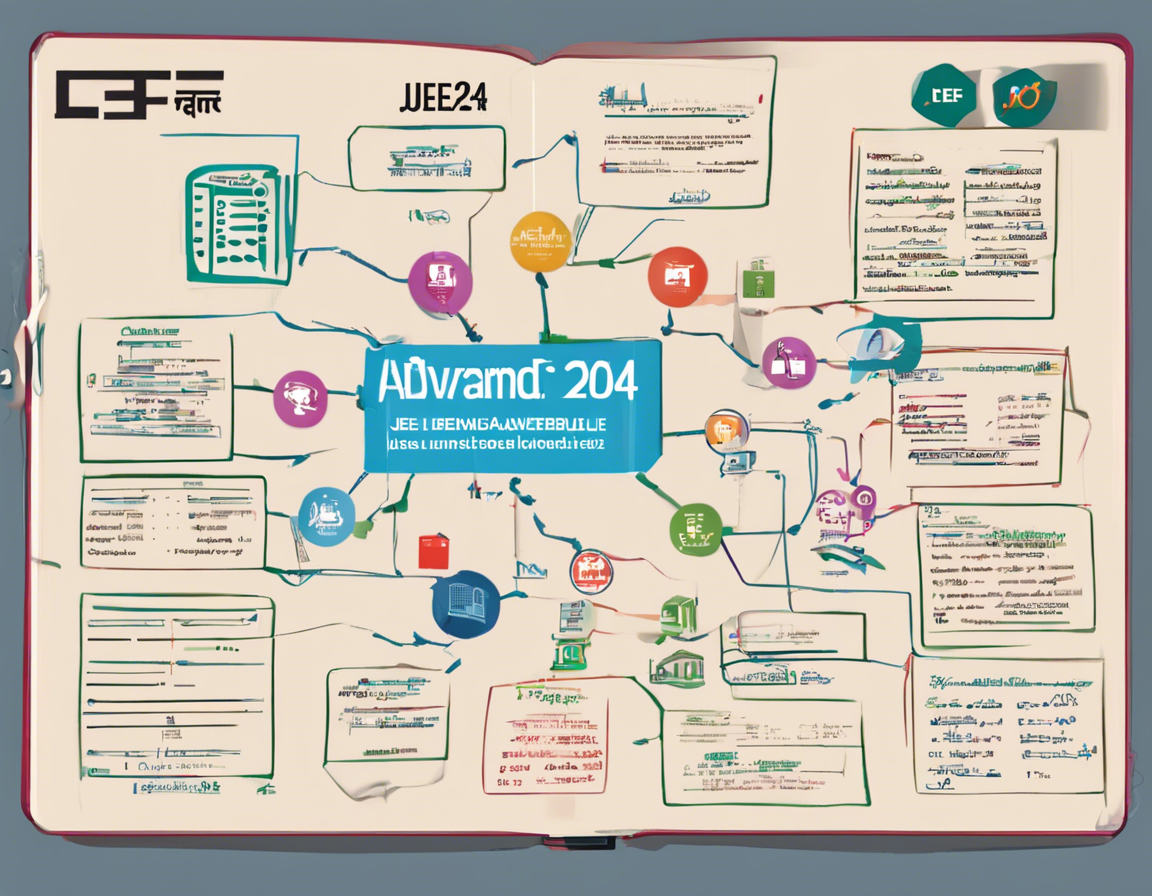The Joint Entrance Examination (JEE) Advanced is one of the most prestigious and challenging engineering entrance exams in India. It is the gateway to securing admission into the prestigious Indian Institutes of Technology (IITs). Aspiring engineers dream of cracking this exam to kick-start their career in engineering. However, the JEE Advanced exam is known for its difficulty level and rigorous competition. To ace the JEE Advanced 2024, students need to have not only a strong conceptual understanding of the subjects but also a strategic approach to their preparation. In this comprehensive guide, we will discuss various strategies and tips that can help you excel in the JEE Advanced 2024.
Understanding the Exam Pattern and Syllabus
Before proceeding with your preparation, it is crucial to have a clear understanding of the exam pattern and syllabus of JEE Advanced. The exam consists of two papers – Paper 1 and Paper 2, each containing three sections – Physics, Chemistry, and Mathematics. The questions asked are of multiple-choice and numerical type, testing both theoretical knowledge and application of concepts. The syllabus is vast and covers topics from Class 11 and Class 12, primarily focusing on fundamental concepts and their applications. Make sure to go through the official brochure provided by the exam conducting authority for detailed information.
Create a Realistic Study Schedule
Effective time management is the key to success in JEE Advanced. Create a realistic study schedule that allocates sufficient time to each subject based on your strengths and weaknesses. Divide your study hours efficiently, considering both revision and new learning. Include breaks in between study sessions to avoid burnout. Regularly evaluate your progress and make necessary adjustments to your schedule.
Strengthen Your Basics
A strong foundation in fundamental concepts is imperative for cracking JEE Advanced. Focus on building your basics in Physics, Chemistry, and Mathematics. Start with NCERT textbooks and gradually move to advanced study materials. Understand the theory behind each concept and solve numerical problems to solidify your understanding. Do not rush through topics; master each concept before moving on to the next.
Practice Regularly
Practice is the key to excelling in JEE Advanced. Solve a variety of problems from different sources to enhance your problem-solving skills. Opt for previous years’ question papers and mock tests to get a feel of the actual exam pattern. Time yourself while solving questions to improve your speed and accuracy. Analyze your mistakes and work on improving them.
Seek Guidance and Clarify Doubts
Do not hesitate to seek guidance from teachers, coaches, or peers whenever you encounter doubts or difficulties in understanding certain concepts. Join a coaching institute if needed, but remember that self-study plays a crucial role in JEE Advanced preparation. Utilize online resources such as webinars, videos, and doubt-clearing platforms to supplement your preparation.
Stay Healthy and Positive
Amidst the rigorous preparation, do not neglect your health. Follow a balanced diet, get an adequate amount of sleep, and engage in physical activities to keep your mind and body refreshed. Stay positive and confident throughout your preparation journey. Cultivate a positive mindset and believe in your abilities. Practice meditation or yoga to improve your concentration and mental agility.
Frequently Asked Questions (FAQs)
1. How many times can I attempt JEE Advanced?
– A candidate can attempt JEE Advanced a maximum of two times in consecutive years.
2. Is coaching necessary for cracking JEE Advanced?
– While coaching can be beneficial, it is not mandatory. With self-discipline and dedication, one can crack JEE Advanced through self-study as well.
3. How can I manage my time effectively during the exam?
– Practice time-bound mock tests regularly to improve your time management skills. Prioritize questions based on their difficulty level and mark them for review.
4. How important is solving previous years’ question papers for JEE Advanced preparation?
– Solving previous years’ question papers gives you an insight into the exam pattern, difficulty level, and helps in identifying important topics.
5. Is it necessary to attempt all questions in JEE Advanced?
– There is negative marking in JEE Advanced, so it is advisable to attempt only those questions you are sure about. Guessing can lead to deduction of marks.
6. Should I focus more on theory or numerical problems in JEE Advanced preparation?
– A balanced approach is essential. Understanding theory is crucial, but application of concepts through numerical problems is equally important.
7. How can I stay motivated during long months of JEE Advanced preparation?
– Set short-term goals, reward yourself for achieving milestones, and surround yourself with motivated peers or mentors who can keep you inspired.
8. Is NCERT enough for JEE Advanced preparation?
– While NCERT textbooks are essential for building basic concepts, additional reference books and study materials are recommended for in-depth preparation.
9. Is it beneficial to join online JEE Advanced preparation courses?
– Online courses can be beneficial for flexible learning and accessing quality study material. Choose reputable platforms and ensure interactive sessions for effective preparation.
10. How can I improve my speed in solving numerical problems for JEE Advanced?
– Regular practice, shortcuts, and techniques can help in improving your speed. Focus on conceptual clarity to solve problems more efficiently.
In conclusion, cracking JEE Advanced 2024 requires determination, discipline, and strategic preparation. By following the strategies mentioned above and staying focused on your goal, you can enhance your chances of securing a good rank in one of the most prestigious engineering entrance exams in India. Remember, success does not come overnight; consistent effort and hard work will pave the way for your success.
